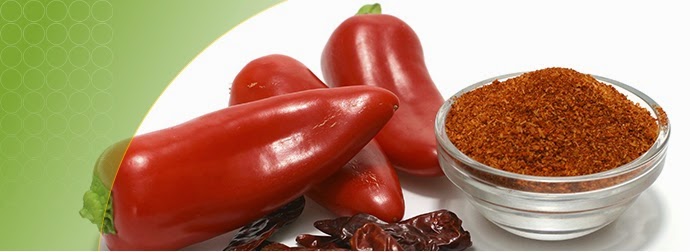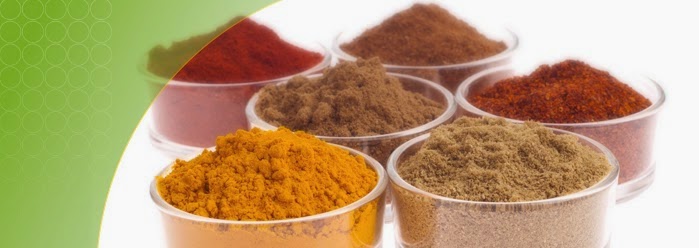The Scottish company which has been ahead of the game in virtually all recent food safety scares in the UK has once again created potential solutions to the latest nuts-in-spices scandal.
R-Biopharm Rhône, one of Scotland's most important food safety companies, has proved experimentally that two of its market-leading range of allergen test kits - RIDASCREEN®FAST Peanut and RIDASCREEN®FAST Almond - can quantify peanut and almond contaminations in spices.
The tests are vitally important for Britain's nut allergy sufferers, who were at potential risk this month when it was discovered that undeclared nuts were present in some dishes containing expensive spices such as cumin and paprika.
The discovery, which some food experts predict will be of more significance than the horsemeat-in-burgers scandal of 2013, follows a failure of the cumin harvest in India - leading to fears that peanuts and almonds are either being used as a substitute to save
money. Or, that there has simply been an accidental contamination at some point during the harvest, storage or production process.
Simon Bevis, Managing Director of R-Biopharm Rhône, said: "Once again, the integrity of the food which consumers are being offered is in question, and the need for standards on which consumers can rely is reinforced.
"Food producers and test laboratories need reliable analytical methods for detection and quantification of foreign elements and R-Biopharm's test kits have been proven to provide the answers.
"These tests, carried out in controlled circumstances, have the ability to help safeguard public health and will allow consumers to have greater confidence in products which they are eating on a regular basis."
Cumin is one of the UK's most popular ingredients, used as a flavour enhancer and in processed meals, as well as in curries. Paprika is widely used in mixes and seasonings in the catering industry.
The inclusion of nuts can potentially create a range of hazards, ranging from mild symptoms such as abdominal pain to anaphylactic shock and even death in susceptible people.
The Glasgow-based manufacturer was at the forefront of the horsemeat scandal of 2013. In addition, they offered in-house and external laboratory testing to help with the identification of fish species after it came to light that cheaper fish were being substituted for more expensive species.
Product Manager, Claire Milligan, said: "Food safety is a vitally important issue and the industry has to be able to be sure that products which people will consume are as safe as it is possible to make them.
"R-Biopharm Rhône's testing procedures are continually evolving and operate at high levels of sensitivity to meet increasingly stringent legislation."
Visit the website HERE.
R-Biopharm Rhône, one of Scotland's most important food safety companies, has proved experimentally that two of its market-leading range of allergen test kits - RIDASCREEN®FAST Peanut and RIDASCREEN®FAST Almond - can quantify peanut and almond contaminations in spices.
The tests are vitally important for Britain's nut allergy sufferers, who were at potential risk this month when it was discovered that undeclared nuts were present in some dishes containing expensive spices such as cumin and paprika.
The discovery, which some food experts predict will be of more significance than the horsemeat-in-burgers scandal of 2013, follows a failure of the cumin harvest in India - leading to fears that peanuts and almonds are either being used as a substitute to save
money. Or, that there has simply been an accidental contamination at some point during the harvest, storage or production process.
Simon Bevis, Managing Director of R-Biopharm Rhône, said: "Once again, the integrity of the food which consumers are being offered is in question, and the need for standards on which consumers can rely is reinforced.
"Food producers and test laboratories need reliable analytical methods for detection and quantification of foreign elements and R-Biopharm's test kits have been proven to provide the answers.
"These tests, carried out in controlled circumstances, have the ability to help safeguard public health and will allow consumers to have greater confidence in products which they are eating on a regular basis."
Cumin is one of the UK's most popular ingredients, used as a flavour enhancer and in processed meals, as well as in curries. Paprika is widely used in mixes and seasonings in the catering industry.
The inclusion of nuts can potentially create a range of hazards, ranging from mild symptoms such as abdominal pain to anaphylactic shock and even death in susceptible people.
The Glasgow-based manufacturer was at the forefront of the horsemeat scandal of 2013. In addition, they offered in-house and external laboratory testing to help with the identification of fish species after it came to light that cheaper fish were being substituted for more expensive species.
Product Manager, Claire Milligan, said: "Food safety is a vitally important issue and the industry has to be able to be sure that products which people will consume are as safe as it is possible to make them.
"R-Biopharm Rhône's testing procedures are continually evolving and operate at high levels of sensitivity to meet increasingly stringent legislation."
Visit the website HERE.
The Global Miller
This blog is maintained by The Global Miller staff and is supported by the magazine GFMT
which is published by Perendale Publishers Limited.
For additional daily news from milling around the world: global-milling.com




No comments:
Post a Comment